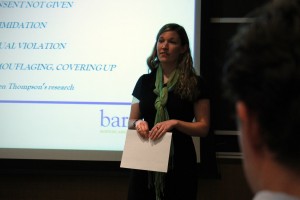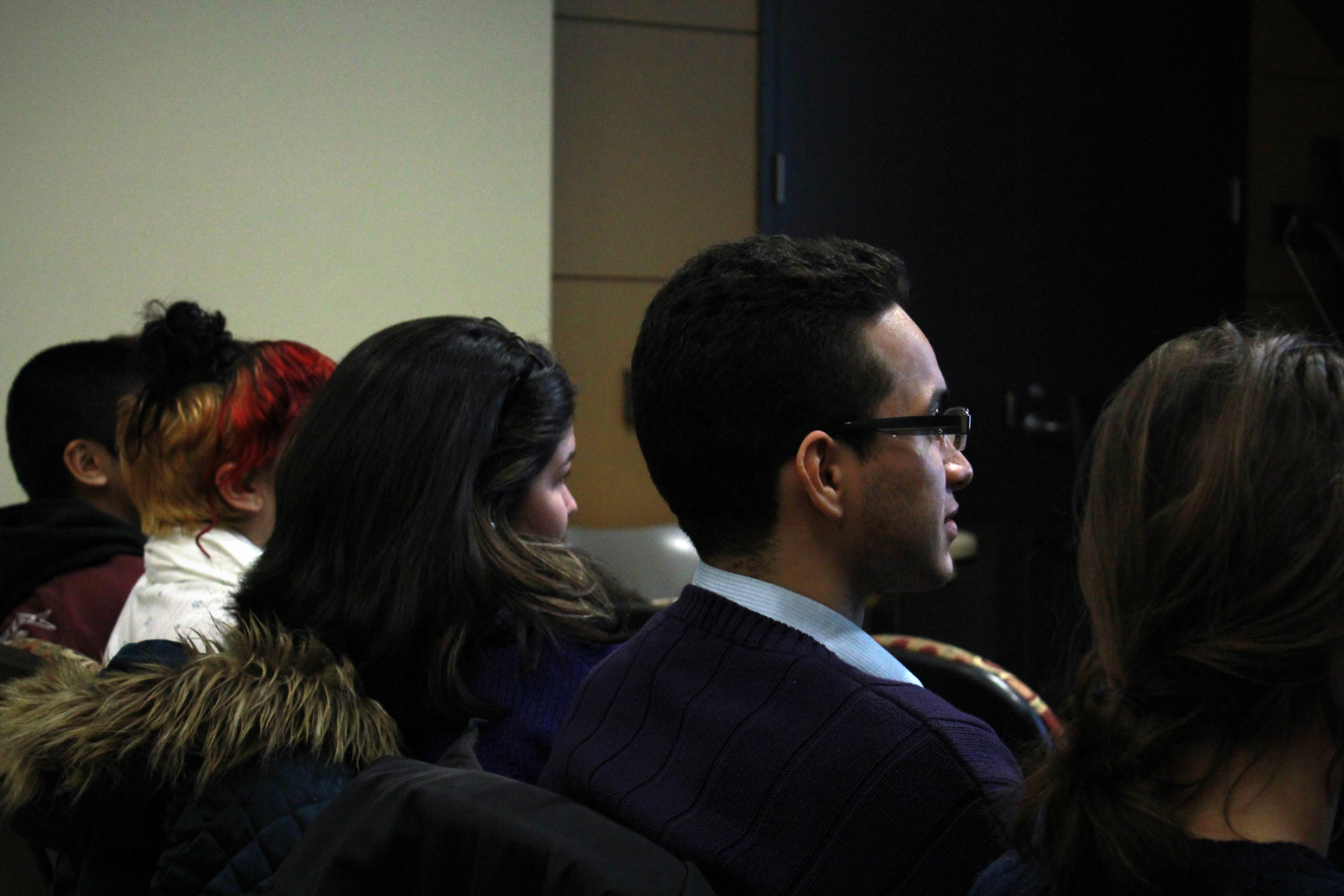
This past Wednesday night a very important discussion was held in the basement of the College of Arts & Sciences. I refer to it as a discussion rather than a presentation because the level of engagement between presenters and audience members was unlike the kind that I have seen in other such presentations.
The first presenter, a woman from the Boston Area Rape Crisis Center (BARCC), asked if us few attendees would participate in a sort of icebreaker exercise. After standing up, she asked a series of questions relating to whether or not we had known or currently know someone directly affected by rape. Everyone in the room was left standing. It’s a shocking revelation when you’re standing among a roomful of people in acquaintance with what is probably a roomful more who have been assaulted, or worse.
Lisa, the lead presenter, then segued right into the actual presentation itself. Some basic information about the organization is given and she urged attendees to plug in the number for the BARCC hotline, which I will mention below. Lisa then delivered some shocking knowledge that should put any college student at an instant level of discomfort. In college, 10% of males and 25% of females experience an attempted or completed rape. In light of recent events around campus over the past year, these statistics aren’t exactly comforting. What’s more disturbing is that 90% of college campus assault and rape survivors know their attackers.
After some discussion about the correct terminology that should be utilized when discussing instances of rape or sexual assault, the presenters really nailed down what it means to give consent. They stressed that with regard to sex, both participants should “want to make it awesome so it rocks. Why would you want grey-area sex?” An audience members replied, “I think you make a great point, but I think we’re missing a third factor here—alcohol.”
According to the law, someone is unable to give consent if they are incapacitated. Unfortunately, that means when you go all YOLO on a Friday night an end up blackout at a party or elsewhere, you are only exposing yourself to the possibility that you may actually give consent you wish you hadn’t in the morning. It is due to circumstances such as these that warrant the need for regulation of alcohol consumption—or at the very least, a friend to call you out.
At the close of what was, at some points, a pretty emotional and highly provoking conversation, the speakers from BARCC dispersed promotional material with many helpful tips and links to resources, and also stressed the importance of participating in this year’s Walk For Change. Perhaps our campus, like so many others, does need a change. And perhaps it can start here and now.
You can reach the BARCC at (800)-841-8371.

